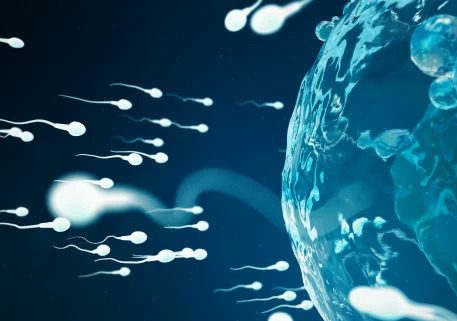Intracytoplasmic Sperm Injection (ICSI)
Intracytoplasmic Sperm Injection (ICSI) is a laboratory procedure to help infertile couples undergoing IVF due to male factor infertility. It is a form of micromanipulation that involves the injection of a single sperm directly into the cytoplasm of a mature egg (oocyte) using a glass needle (pipette). If there is any problem with a sperm’s ability to fertilize the egg (either due to low sperm count or poor sperm quality) ICSI is the most common and accurate method for solving it. Our colleagues were part of the original Belgian team that developed ICSI, and who first introduced it in the U.S. Eggs are retrieved in the same way as if you were doing conventional IVF, however, the eggs and the sperm are then fertilized in the laboratory, by direct injection of a single sperm into each egg. Two to five days later the resulting embryos are placed into the uterus (without surgery), just as with IVF procedures and any other embryos can be frozen for later using our method of vitrification.
The availability of ICSI has made it possible for men who previously would have been thought of as impotent because their sperm were too weak or too few to impregnate their wives through in vitro fertilization. This is no different from regular IVF with normal sperm. This technique is very cost-effective, and will give you the same high chance for getting pregnant as any couple with normal sperm. In fact, we perform ICSI at no extra charge for all of our IVF cycles to obtain better fertilization rates and better results even when the husband’s sperm count is not impaired. Often, a single, almost non-moving sperm can be retrieved and injected into a woman’s egg, developing into a healthy embryo and a completely normal baby. So far, over 100,000 babies have been born with this technique, and the babies have grown up to be physically, mentally, and genetically normal, no matter how poor original sperm samples were.
In some cases, we can even perform a testicle biopsy, remove a few sperm and, using a highly refined ultra-micropipette, inject it into an egg for a successful ICSI.
SPERM RETRIEVAL FOR INTRACYTOPLASMIC SPERM INJECTION ICSI

Sperm can be retrieved from the testicle or epididymis and injected into their partner’s eggs. This approach births the highest pregnancy rate and the least discomfort for the male. The requirement is that these sperm retrieval procedures be performed micro surgically.
By using our sperm retrieval and ICSI treatments, even when there is no sperm present in the man’s ejaculate (azoospermia), there is still a very good chance for pregnancy. The techniques of sperm retrieval and ICSI were originally developed by Dr. Silber in Brussels, Belgium, and in St. Louis, Missouri.
There are two types of azoospermia, obstructive and non-obstructive. Obstructive azoospermia can be caused by vasectomy, congenital absence of Vas Deferens, poorly performed hernia surgery, or Epididymal scarring from prior infections.

In cases of Obstructive Azoospermia, sperm aspiration with ICSI will provide the couple with the same chance for getting pregnant as any couple with a normal sperm count undergoing IVF. We can micro-inject a single retrieved sperm directly into the substance of the egg and get normal fertilization. Virtually all (with some rare exceptions) of the couples in whom Epididymal sperm are present, have transfers of good embryos. Up to 46% per each treatment cycle get pregnant and have a baby. Those who don’t carry a baby still have a 46% chance if they try a second time. Nearly all couples have enough sperm to be frozen and stored. This frozen sperm can then be used at a later time in conjunction with another IVF/ICSI procedure for the wife/partner. Thus, the husband/partner does not need to undergo any more sperm aspiration procedures after the first procedure. The babies from ICSI are healthy and genetically normal.
Even when little or no sperm is found in the Epididymal tubules, or when there is no epididymis, we can get good fertilization by using testicular sperm. The success rate is similar to that with Epididymal sperm. The only drawback to using testicular sperm is that it does not freeze as well. However, these procedures can be done be in a few minutes under local anesthesia, and with very little post-operative pain. At present, for cases of obstructive Azoospermia, one way or another, we can always get sperm that is adequate for fertilization.
Another alternative you may have recently heard about is “fine needle aspiration”. Fine needle aspiration is generally offered by doctors or clinics that do not have access to an operating room or delicate microsurgery. The only option these programs can offer you is to put a needle into the testicle in an attempt to retrieve sperm. The approach of microsurgical vasectomy reversal is the most cost-effective first choice option for fulfilling your desire to have children. However, needle aspiration or microsurgical sperm retrieval plus ICSI is a good second choice for cases where a competent microsurgical vasectomy reversal has failed, or where the man doesn’t want to undergo surgery.
The other type of Azoospermia (no sperm in the ejaculate) is non-obstructive, and this is caused by “apparent” absence of sperm production in a deficient testicle. A severe male fertility problem such as this, which is caused by extremely low, or apparently no sperm production, with no sperm whatsoever reaching the ejaculate, now also has a very good chance for success using testicular sperm retrieval and ICSI. We have discovered that in cases where there appears to be no sperm production, we can usually find a few sperm in the testicles. Further, we can use these sperm to fertilize the wife/partner’ oocytes (eggs) via ICSI.
Pregnancy rates in such cases are no different than in men with normal sperm counts. The reason this can be done is that in over 60% of men with Azoospermia, and “no sperm production,” there is a tiny focus of sperm production, making too few sperm to reach the ejaculate. Nevertheless, testicular sperm retrieval can help us microsurgically find these few sperm.
If you have any questions, you may call us at 212-517-7676
